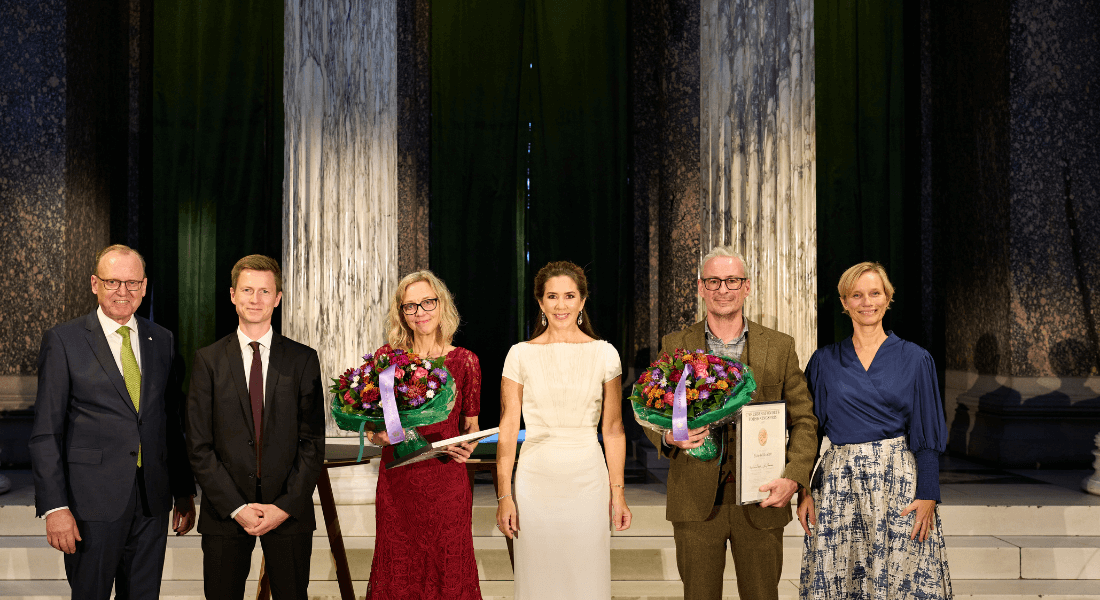Eske Willerslev awarded the Carlsberg Foundation Research Prize 2021
Professor Eske Willerslev from the University of Copenhagen receives the prize for many years’ ground-breaking research into prehistoric plants, animals, microorganisms and humans and their evolution and historical interaction

Last Sunday, HRH The Crown Princess, Minister for Higher Education and Science Jesper Petersen, President of the Royal Danish Academy of Sciences and Letters Marie Louise Nosch and Chairman of the Carlsberg Foundation Flemming Besenbacher handed out this year’s Carlsberg Foundation Research Prizes at Ny Carlsberg Glyptotek.
Professor at the GLOBE Institute at the Faculty of Health and Medical Sciences, University of Copenhagen, Eske Willerslev received one of the Carlsberg Foundation Research Prizes 2021 for having transformed not only his own research field – prehistoric genetics and evolutionary biology – but science in general.
20 years ago, he proved that you can extract prehistoric DNA from fossils and sediment samples. He thus contributed to the creation and subsequent expansion of the field of environmental DNA. This struck a responsive chord with the international scientific community, as his work not only led to new knowledge, but also to the creation of new methods.
With the prize comes DKK 1 million of which DKK 250,000 constitutes a personal mark of honour and the remaining DKK 750,000 can be used for independent research activities – which will make a difference at his research centre, Eske Willerslev explains:
’It is a great pat on the back, both for me personally and for my research centre. Access to independent research funding that is not earmarked for a specific purpose is limited. So in practice, it means that we – at my research centre – will be able to determine the potential of some new laboratory analyses that we so far have not been able to test’.
To understand the present and the future, we need to study the past
The innovative potential and search for answers to fundamental questions about the existence of life on Earth and what it means to be human is what drives Eske Willerslev and his research. Because this is where we are able to bridge the gap between past, present and future.
In connection with receiving the Carlsberg Foundation Research Prize, he says that he is particularly proud of being able to reconstruct present and past biological ecosystems of animals and plants from a lump of clay the size of a sugar cube.
This has led to increased focus on and opportunities for monitoring animal and plant populations both in the sea, lakes, rivers and on land.
In addition, the ability to map the first genome from prehistoric humans has made it possible for Eske Willerslev and others to rewrite significant parts of human history throughout the globe and, in so doing, increase our understanding of how we have evolved into the humans we are today.
Finally, he points to the discovery that pathogenic diseases driven by viruses and bacteria from the past are preserved in human teeth, even though the skeletons show no signs of disease.
This knowledge has made it possible to study the evolution and spread of infectious diseases such as the plague, hepatitis B and smallpox. This will lead to the creation of catalogues of genetic changes which these diseases are likely to undergo in the future – thus increasing our understanding and ability to handle e.g. current and future waves of disease.
Contact
Professor Eske Willerslev
ewillerslev@sund.ku.dk
+45 28 75 13 09
Press Officer Søren Thiesen
s.thiesen@sund.ku.dk
+45 28 75 29 34
